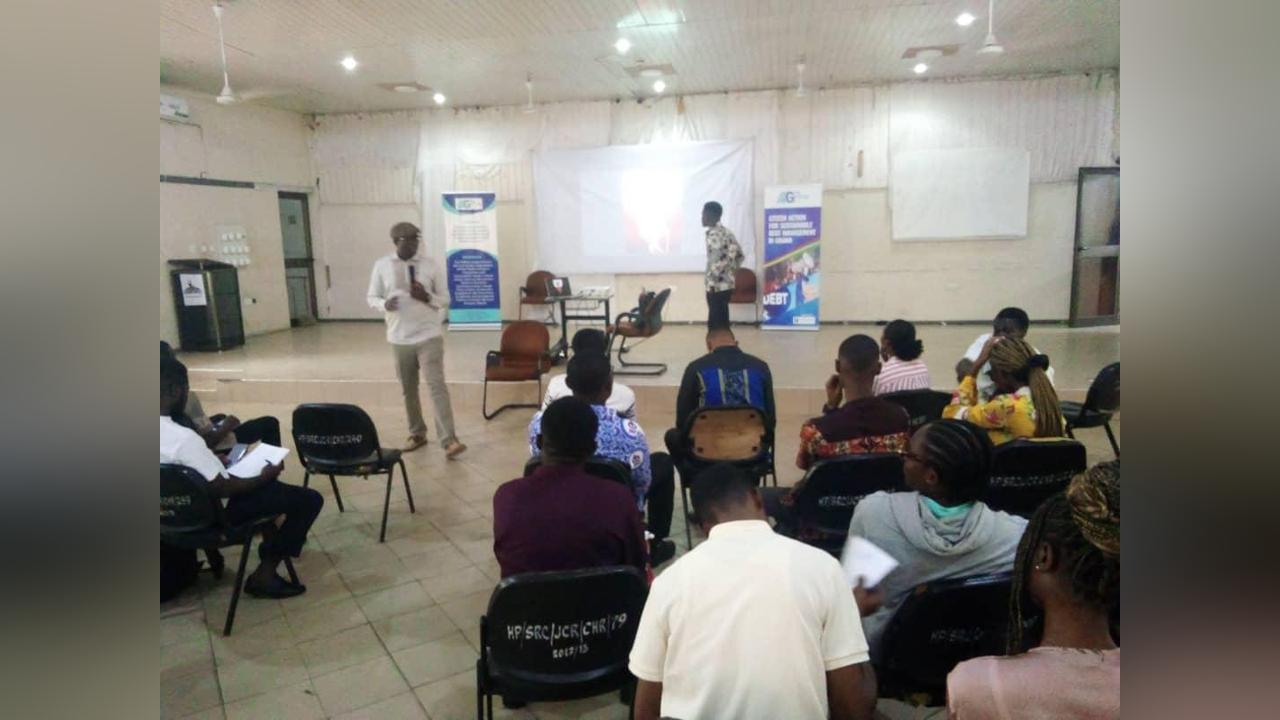Africa-Press – Ghana. The Economic Governance Platform, a coalition of prominent civil society organisations (CSOs) advocating for sound economic management, has held an interactive session with student leaders of the Ho Technical University (HTU).
The programme is to deepen the students’ understanding of sustainable debt management and its implications for national development.
The engagement, part of the Platform’s Citizen Action for Sustainable Debt Management in Ghana initiative, sought to demystify debt-related issues and encourage youth participation in national economic discourse.
The programme, dubbed the “Debt Café,” held on August 13, provided a relaxed and conversational atmosphere for discussing how to manage the economy more sustainably.
Mr. Abdul Karim Mohammed, Coordinator of the Economic Governance Platform, explained that national debt conversations in Ghana often remained at elite levels, far removed from the people most affected by debt-induced economic crises.
He stressed that the youth — as leaders of today — must be empowered with knowledge and practical insights to take part in shaping sustainable economic policies.
“Over the years, Ghana has found itself in a vicious cycle of falling into debt traps, seeking bailouts from the IMF, stabilising temporarily, and then slipping back into crisis,” he said.
“A major contributor is the tendency to prioritise political expediency over fiscal discipline, particularly during election years. This pattern cuts across successive governments, and we must collectively work to break it.”
Mr. Mohammed highlighted the lack of transparency in debt management, including inconsistencies in debt classification and accounting.
He noted that during Ghana’s last debt sustainability analysis, the country’s debt-to-GDP ratio stood at 105 per cent — far above the 75 per cent ceiling recommended for lower-middle-income countries.
He also pointed out structural weaknesses in the debt approval process, such as the speed with which loan agreements are pushed through Parliament without adequate scrutiny.
“These are technical financial documents prepared by experts, yet MPs are often given limited time to review them before approval. The consequences fall on the entire nation, as scarce resources are redirected from development projects to debt servicing,” he said.
Participating CSOs in the Economic Governance Platform include the Ghana Anti-Corruption Coalition, Ghana Integrity Initiative, CDD-Ghana, IDEG, Africa Centre for Energy Policy, and Eduwatch, among others.
The students expressed appreciation for the opportunity to engage on the topic, noting that the discussions broadened their perspective on debt management and its link to national development.
They called for more of such engagements to empower young people to contribute meaningfully to governance and economic decision-making.
For More News And Analysis About Ghana Follow Africa-Press







